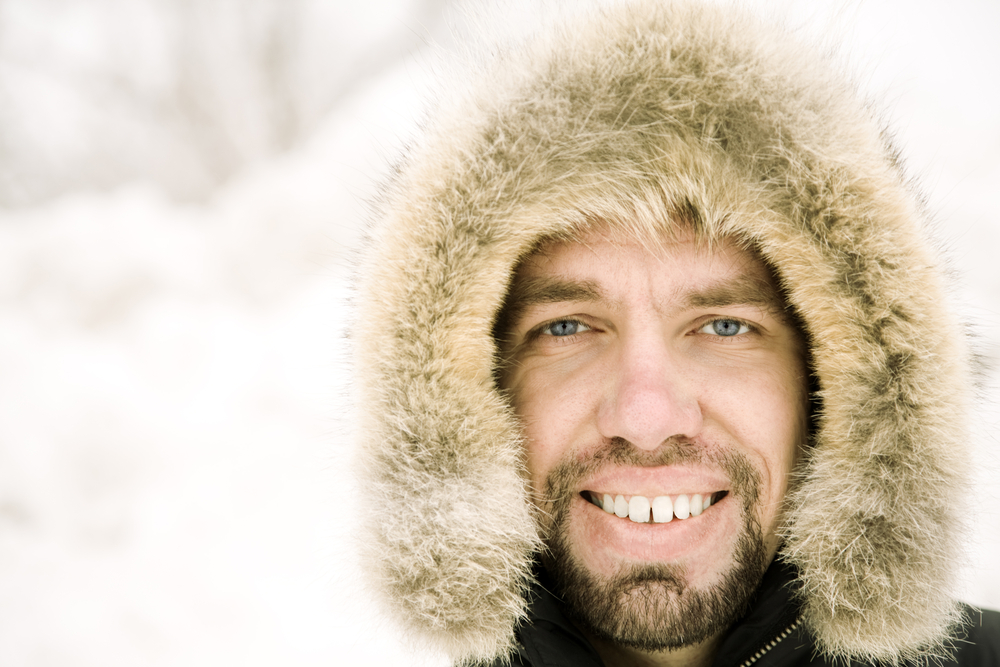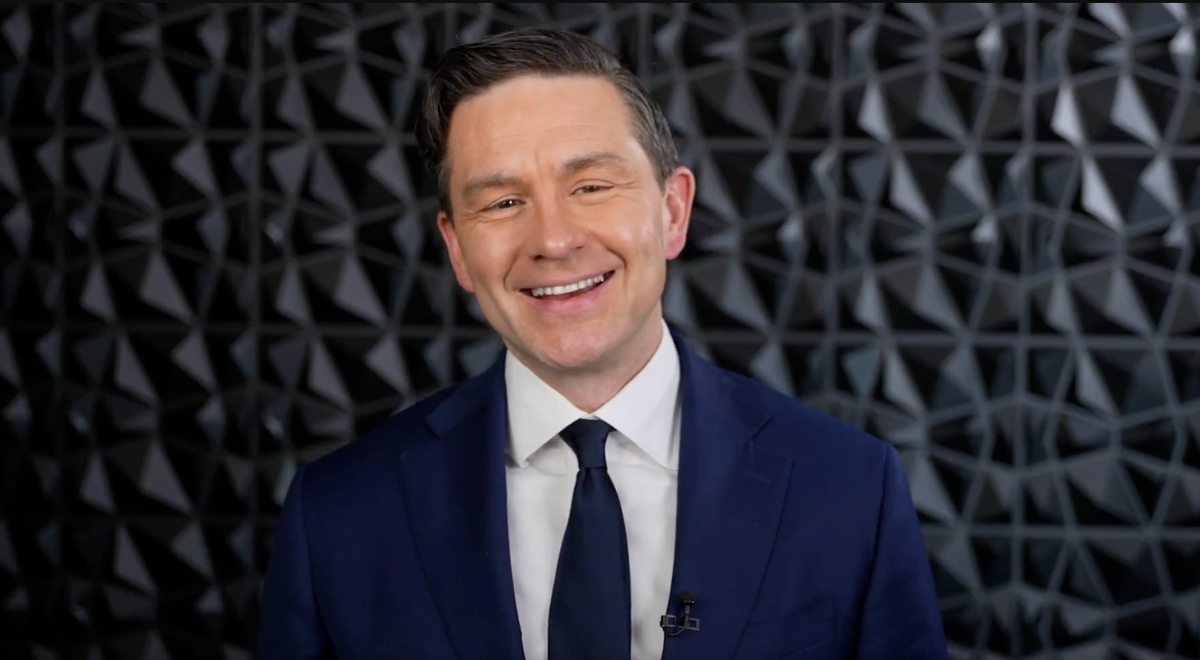SCARBOROUGH, ON – Local man Geoff Bridgley, who recently expressed enthusiasm at this winter’s robust snowfall in the face of bleak worldwide climate change indicators, has now reverted to the standard Canadian position of seething anger at all the snow. Bridgley, a local marketing consultant, was previously seen enjoying snowy neighbourhood walks, making snow angels, […]
The post Man who was happy to see snow for climate change reasons now back to angry appeared first on The Beaverton.

Shoppers Drug Mart, Ontario – A new study from researchers at Harvard Medical has found that people who ignore their emotions and bury them deep within ends up being the best approach for society at large. “It really is a game-changing discovery,” explained Dr. Theresa Huggins, the head researcher for the study. “It turns out […]
The post New study finds pushing feelings way deep down inside is best option for everyone appeared first on The Beaverton.


For the first time in over a year, Conservative Party Leader Pierre Poilievre’s lead in the polls is tightening substantially. His biggest challenge? Responding to United States President Donald Trump’s threats against Canada.
Since Trump’s inauguration in January, polls have shown an uptick in support for the Liberals — particularly in a scenario where leadership candidate Mark Carney takes the helm, but also even with Justin Trudeau still in charge.
Even if these shifts don’t ultimately result in a closer outcome at the next election, Poilievre appears to have taken notice.
The Conservative leader has recently stated that Canada will never be America’s “51st state” and denounced Trump’s tariff threats as “wrong and unjustified.”
He repeated these repudiations at a “Canada First” rally held in Ottawa this past weekend, where his podium was decorated with the red and white of the Canadian flag instead of his party’s traditional blue branding.
At the same time, Poilievre has yielded to some of Trump’s pressure by announcing plans to further militarize Canada’s borders and the Arctic, and to pay for it with a “massive” cut in foreign aid (as Trump himself did).
He is also promising heavy-handed measures to incarcerate “fentanyl kingpins,” with an explicit nod to Trump’s largely unfounded comments about fentanyl crossing from Canada into the U.S.
But on the economic front, Poilievre’s basic pitch to Canadians in the face of Trump’s threats remains much the same as it has been for his entire career: cutting taxes, shrinking the parts of government that Conservatives don’t like and rolling back corporate regulations.
Over the past month, Poilievre has denounced “Carney-Trudeau tax hikes” as an “existential disaster for the Canadian economy”; blamed “radical tax increases” and slow approvals on energy projects for driving investment out of Canada and into the U.S.; called to help entrepreneurs succeed “quickly and profitably”; and repeated his attacks on carbon pricing with his trademark call to “axe the tax.”
His “Canada First” rally included a pledge to introduce the “biggest and most patriotic tax cut in Canada’s history,” along with sweeping cuts in government spending.

He also promised to repeal legislation that allows regulators to examine the environmental and social impacts of resource extraction projects, and to dismantle so-called “inter provincial trade barriers,” a talking point dismissed as a “corporate scam” by some economists.
The goal, as Poilievre sees it, is to make Canada a more attractive place to invest by giving business leaders whatever they want.
In fact, The Maple’s analysis of Poilievre’s record shows that his responses to Trump’s threats, past and present, have remained very consistent, reflecting the Conservative Party leader’s devout belief in free market orthodoxy — which he has maintained since he began his political career as a teenager.
The problem, said David Macdonald, a senior economist with the Canadian Centre for Policy Alternatives, is that the era of the free market — the one in which Poilievre came of political age and formed his worldview — is over.
What’s needed now, Macdonald said, is something quite different: a statist approach to the economy.
“We need to champion particular industries. We need to ensure that they are exporting high quality goods around the world,” he explained. That, he said, won’t happen through tax cuts.
Little in Poilievre’s messaging indicates he is ready to acknowledge this changing reality.
MAGA Of The North?
Perhaps the biggest challenge for Poilievre in the face of Trump’s threats is trying to convince certain voters that he is not Trump’s northern bedfellow.
Since launching his campaign for Conservative Party leader in 2022, Poilievre has faced accusations that he is pursuing an agenda akin to Trump’s “Make America Great Again” clarion call.
That perceived association, with Trump’s outright threats to annex Canada mounting by the day, now appears to be a major liability — one that the struggling Liberals have tried to make hay from for months.
Poilievre’s brushes with the MAGA orbit are hard to miss. He sprang into action as a party leadership contender marching with members of the “Freedom Convoy” that occupied downtown Ottawa for the better part of a month in early 2022 — and which received support from Trump.
A convoy spokesperson even said: “We all think that Pierre resonates with the vast majority of Canadians in his opposition to Justin Trudeau.” “We,” in that context, represented a constituency that Poilievre likely felt he needed to court in order to stave off the rival People’s Party of Canada.
For their part, some conservative-minded commentators have rejected the Trump comparisons, insisting that Poilievre is a standard conservative in the mold of former prime minister Stephen Harper or former U.S. president Ronald Reagan.
The debate came to a head during an interaction with a reporter in British Columbia in 2023.
The reporter suggested Poilievre was “taking a page out of the Donald Trump playbook,” to which Poilievre asked: “Who?” “Which people?” “What page?” The reporter stumbled, excruciatingly.
What was notable about the exchange was that Poilievre deftly played both sides. He avoided disavowing or even criticizing Trump, who is admired by a significant chunk of the Conservative Party’s base. But he didn’t allow himself to be aligned with Trump, either.
By rejecting the premise of the reporter’s questions, Poilievre was able to stick it to the press in a way that delighted media-hating Trump fans, and at the same time made comparisons between himself and Trump seem like a non-starter to everyone else.
Wise, as Trump is strongly disliked by the wider Canadian electorate. Just 21 per cent of Canadians would have voted for the GOP candidate before he took office and picked fights with neighbouring states, including Canada. His net favourable ratings among Canadians now stand at -50 per cent.
But are the comparisons of Poilievre to Trump baseless?
The Conservative leader’s often petty attacks on journalists, his constant references to “woke” ideology as the root of society’s ills and now his commitment to militarizing borders are all examples of basic alignment with the MAGA mission. Even his jingoistic “Canada First” slogan mirrors Trump’s “America First.”
Meanwhile, Poilievre received an enthusiastic endorsement from billionaire Elon Musk, one of Trump’s top lieutenants (or string pullers, some would say) in the Oval Office.
Free Market Warrior
While Poilievre shares some of Trump’s rhetorical strategies and elements of his program, it’s also true that Poilievre hasn’t always spoken favourably of Trump’s actions, particularly when they’ve targeted the Canadian economy and free trade.
But in the first days of Trump’s first term in 2017, Poilievre, then opposition critic for “work and opportunity,” approvingly referred to a “pro-business president and free enterprise Congress” that he believed would create stiff economic competition with Canada.
“American capitalism may be returning with a vengeance. It will be hungry and fierce, so we cannot afford to be fat and lazy — or Americans will eat us for lunch,” Poilievre warned in a National Post op-ed, in which he also incorrectly predicted that Canada would be spared from Trump’s tariffs.
That year, Trump passed major tax cuts for individuals and corporations that largely benefited the wealthy.
After Trump slapped tariffs on certain Canadian goods in 2018, Poilievre repeatedly denounced the Trudeau government for taxes and “regulatory obstacles” that he said were driving investors out of Canada and “into the arms of Donald Trump.”
“Higher taxes and more red tape have sent our investments and our dollars south,” Poilievre declared during a House of Commons debate in September 2018. He later railed against the so-called “gatekeeper economy,” claiming that high energy costs and high taxes were sending Canada’s manufacturing base to the U.S. and “other foreign jurisdictions.”
(Outflows of Canadian capital are offset by inflows of “Foreign Direct Investment” in the manufacturing sector, largely from the U.S., according to Stat Can.)
What can be gleaned from these interventions is that Poilievre’s most abiding loyalty is not to Trump per se, but to right-wing economics of the kind espoused by free market economist Milton Friedman, who Poilievre cites regularly and who himself spoke against trade tariffs.
Conservatives who have known Poilievre since his student activist days commonly say he hasn’t changed his views, rhetoric or style since his teenage years. He is a true believer in the free market, explicitly stating as much in Parliament.
“I am a proudly ideological supporter of free trade in all circumstances,” he said in a April 2019 speech that also expressed his opposition to “all trade wars.”
The question, then, is will such an approach be of any help to Canadians in the face of Trump’s threats?
According to Macdonald, the answer is no.
For Poilievre’s “economic competitiveness” pitch to make sense, Macdonald explained, Canada would need to be starting from a level playing field in terms of its ability to trade.
“You couldn’t decrease income taxes enough to offset a 25 or 50 per cent tariff in key industries like that. That no longer makes any sense,” said Macdonald. “We have to realize this isn’t about economic arguments anymore. This is about realpolitik.”
This, he said, means that more government intervention in markets is needed to build economic resilience and ensure that companies can survive and pivot amid a trade war; that workers can be retrained, and that they are adequately supported if there are major disruptions in particular industries.
In a practical sense, this could mean government investment in better energy connections across the country, and perhaps better ports and export capacity to destinations other than the U.S. The government ultimately has to make it cheaper — and therefore more attractive — for Canadian businesses to make decisions to trade with new partners.
All of these measures require public money, and tax cuts ultimately mean there is less for the government to spend, Macdonald said.
As well, a significant amount of Canadian assets are owned by American companies. That means any cut in corporate income tax rates, for example, would also benefit those American companies.
A Friend Of Corporate Canada
The Conservative Party leader has attempted to cultivate a narrative that he is championing the interests of working people against both government “gatekeepers” and corporate elites.
A Bloomberg article published last November speculated that Poilievre, if he becomes prime minister, might open the Canadian banking and telecom sectors to more foreign capital in a bid to establish a “more competitive corporate sector.”
But the article noted that despite Poilievre’s potshots at lobby groups like the Canadian Federation of Independent Business, the organization’s leader has known Poilievre for decades and has met with him “dozens of times.”
In fact, in March 2024, The Breach reported that more than 100 active or recent corporate lobbyists had attended Conservative fundraisers since Poilievre became leader.
While the Conservative leader might have complained about some CEOs allegedly “sucking up” to the Liberal government, plenty of business executives are, per Bloomberg, “willing to defend Poilievre.”
Many of them would, after all, stand to profit from the Conservative leader’s free market agenda.
What’s doubtful is that such an agenda would defend Canadians against Trump.
Alex Cosh is the news editor of The Maple.

Marc Edge says he’s getting a little bit tired of writing books about all the problems with Canada’s news media because no one in Ottawa seems to be paying attention.
The last time we heard from the B.C.-based journalist, author, and academic, he was promoting The Postmedia Effect: How Vulture Capitalism Is Wrecking Our News. Now, in Tomorrow’s News: How to Fix Canada’s Media, his eighth and latest book, Edge is picking up right where he left off.
“This book is for all Canadians who deserve better,” he said. “They need to be better informed about the alternatives that are possible for their news media, rather than the corporate, for-profit alternative that we have now. There are other alternatives that could work better in the future.”
“My research into the news media for the past quarter century has shown the fact that they once made so much money is probably the biggest problem we have because they’ve been taken over by owners such as hedge funds, and they expect those types of returns now,” he said. “So, I think we have to come up with a better system. I think we should grow the non-profit side of journalism for a change.”
Indeed, he explores several business models — from non-profit and employee-owned outlets to various government subsidies and the problems with each.
Edge points out that Canada lags behind the Americans when it comes to non-profit news media.
“In the U.S., they have a much more extensive system of non-profit news media because they’re allowed to accept charitable donations under section 501 (c)(3), of their income tax act. We haven’t had this in Canada until the past few years, but the requirements are so rigorous that only about a dozen media outlets have gained charitable status.”
When it comes to the employee-owned model, Edge says the most famous example is Victoria’s CHEK-TV, which continues to thrive 15 years after going independent when it faced closure by then-owner Canwest Global Communications.
“The community rallied around them and bought advertising, and they were able to dig themselves out of a deep hole, and as you say, they’re thriving now. So, this provides a model for other news media across the country,” he said.
“The Prince Albert Daily Herald in Saskatchewan also went the co-op model, and numerous newspapers in Quebec have [too], so I think that’s a viable option for rescuing endangered publications and broadcasting stations, and that’s something that the government could also encourage with regulations. They recently brought in a new type of co-op ownership, which might be a good model for news media.”
Edge says if there is one drawback to the employee-owned model, it’s when they are a little too successful.
“There have been a number of employee-owned publications in the U.S. The biggest problem is that they have been so successful and so profitable that the employee-owners have to sell out,” he said. “But I don’t know if that would be such a big problem these days.”
Edge’s writing can be heavy on numbers and policy. The book is at its best when it tells the stories of individual news outlets like CHEK.
But his big idea in Tomorrow’s News is to divert some of the new Digital Services Tax paid by the tech giants and telecoms under Ottawa’s Online Streaming Act to individual media outlets. He argues that instead of being a victim of the digital age, journalism can benefit from it.
“A lot of people are making a lot of money off of internet access in Canada,” he said. “The big telecoms are making profit margins up to 50 per cent at last count, they were raking in about $16 billion a year in revenues to hook us up to the internet, and five per cent of that, like the streamers are paying, and like the cable companies pay on their television revenues, would go a long way to funding news.”
Edge expects such a scheme could generate a billion dollars a year, with the only resistance coming from the big telcos themselves. He says the money could be used in a voucher system that would be administered by a new Crown corporation.
“I talk about giving Canadians several hundred dollars every year to spend on subscriptions to the news media of their choice, and we could soon have a thriving news media in Canada and bring what I’m calling a new golden age of journalism.”
Edge says by deemphasizing profits, the news business could help Canadians avoid, what he calls, a social and political cataclysm. As he puts it in the book, we should consider it an investment, not an expense.
“There’s not much money left in news media now, as you may know, so I think it’s time we started looking at it as a public service rather than a money-making venture.”
Tomorrow’s News: How to Fix Canada’s Media is published by New Star Books.
